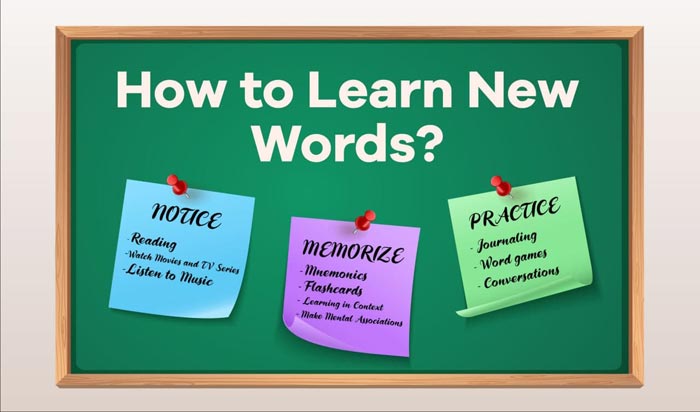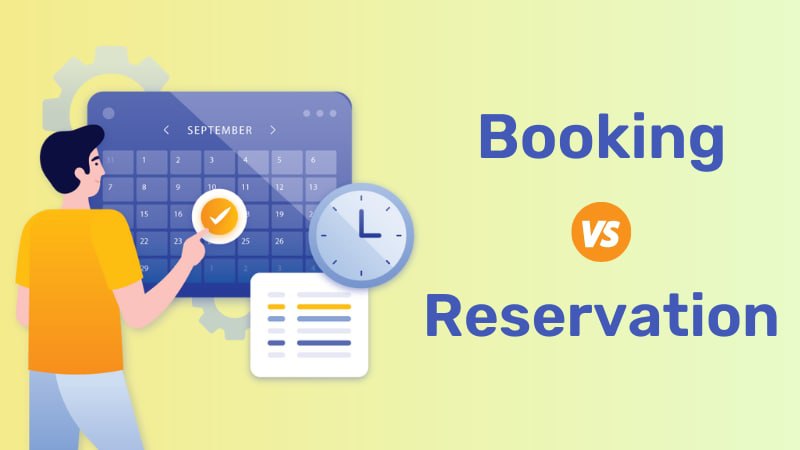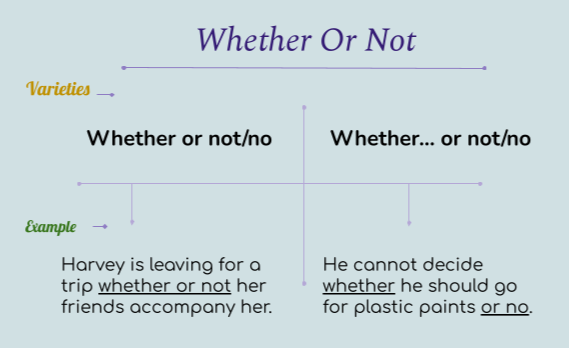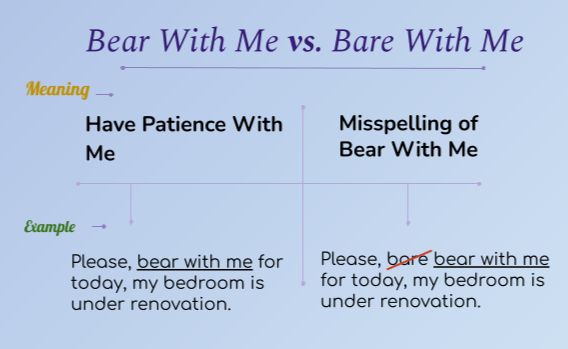How to Learn New Words and Does it Make You Smarter for Real?

Learning a language is no child’s play. Such an irony! It’s always easier to learn new things at a young age and language learning is not different. Having said that it is not an easy process by any means. When we learn a language we aim at learning the vocabulary to get a kick start. But as we have learnt it a fair bit, we get distracted by other stuff and take adding to our vocabulary lightly. It should always be on the top of our list to notice and learn new words when we can. There are a few tricks to make the vocabulary stick to our mind and it makes the process a lot easier.
How to Learn New Words?
By adopting the right method, it is not very hard to learn new words. Notice - Memorize - Practice. With these three corresponding steps, it will be very easy to learn and acquire new words on a regular basis. I might sound scary to always keep doing that but there is a method to the madness so please read on.
NOTICE
The first step of learning new words is to notice them in your daily life. You can keep an eye out for new words 24/7. That would let you notice them easily. There could be a few ways to notice any new word that may come your way.
Reading
Reading is a great way to add to your vocabulary. When you read a book about something, it lets you in on vocabulary and topics regarding its subject matter. It would always broaden your knowledge and outlook. With that comes sets of new words and phrases that you have not known before. Your responsibility is to notice them and add them to your word armory.
Watch Movies and TV Series
Movies or TV series too are great sources to learn a language and its unique expressions in context. If you keep looking for new words and sentences while you are submerged within the realm of the movie, you will find interesting new words and get to know unique usage of them as you stare at the screen. It is not very hard to take notice of them either since our mind automatically shifts our attention to new things we hear or see.
Listen to Music
Songs could be another fantastic way to grab on to new words. With catchy music, the words will automatically stick to your mind while you enjoy it. Noticing them in a song would be a little challenging in terms of new words. Lyrics and music usually blend in an outstanding mixture where in many occasions it becomes hard to tell them apart. You can always look up the lyrics on the internet and take notice of the words you do not know. That way the next time you listen to the same song, you will know what it says exactly and the word will stick.
MEMORIZE
Memorizing new words is a big challenge for most of us. It halts countless new lingual endeavors in the world each day. There are tricks to memorize new words and it can come in handy when trying to memorize new vocabulary in a language you know or one that you are willing to learn.
Mnemonics
Mnemonics is a memory device that lets you remember things easily. We’ve all taken the help of one mnemonic or other during our school years of cramming before exams. Making acronyms with the first letters of a list can help you remember the list. The other way could also help where you use a sentence where each word starts with the letters that construct a word so that you can remember the spelling correctly. There are so many such tools to help with memorizing.
Flashcards
Flashcards can help you remember words that you are learning for the first time as well as practicing them for a few initial days. Having cards with words written on one side and the meaning written on the other will let you learn and practice with the help of a visual apparatus that works like a charm. The effective use of this tool will help new words stick to your memory.
Learning in Context
You can hardly remember a new word or phase in a vacuum. You must learn them in context. With a particular context to guide your mind, it would always be easier to memorize and recall the new words you’ve just learnt. This is why movies and lyrics work so well while learning a new language or adding to your existing armory of words and phrases.
Make Mental Associations
Without making mental associations with the language or words you already know, some visual representations of them or some incident they relate to would always help place the words strongly in your own vocabulary. One can memorize any new information easily using this tool since imagination and making connections come naturally to humans. Some more so than others. Making the knowledgeable decision to link new words to something you already know or have experience would always make a huge difference while memorizing them.
Vocabulary - A Complete Guide to Improve your Word Memory
PRACTICE
Practicing learnt vocabulary on a regular basis would help you acquire them like your own. Language is one of those skills that go bad without regular practice. It is more true for the process of learning vocabulary in a new language or adding to the vocabulary of the language you already know quite a bit.
Journaling
Keeping a journal in the language you are learning would help you stay in constant practice. Writing a few pages or at least one page in that journal each day would be a great help to your newly acquired language skills. It’s no different when it comes to doing your vocabulary. Writing things down always makes it easier for your brain to remember them. Journaling keeps all your endeavors together and things become easily traceable when looking for something you’ve just learnt the previous day.
Word games
Word games can be a fun tool to practice a language. Crosswords, Scrabble, Hangman, Boggle etc. can be your friend or you can find numerous digital word games. The ones available on your phone are highly addictive and time consuming so you must make good use of them towards generating productive outcomes. Always seeing the new letters and words in front of you will be a great natural practice.
Conversations
Conversations are the ultimate goal of language acquisition where some wish to go way beyond. “Practice makes perfect” has never been truer. Listening to the pronunciations and expressions of the speakers of a language is bound to improve your own as your brain registers them simultaneously. That is why most language learning tools online aim to connect the learners to at least a few native speakers of the target language with whom they can practice written or spoken conversations with.
Why Keep Adding to Your Vocabulary?
The bigger your vocabulary, the bigger your capacity for understanding. With a wide array of words at your disposal you can express yourself better in a language. When the language is not your native one, it opens your mind up to new ways of thinking and feeling. If a new language opens up a window to a new realm, the vocabulary gives you new tools to express yourself more accurately. There are a few added benefits to acquiring new vocabulary listed below.
Improving Comprehension
Adding to your vocabulary would improve your comprehension in the said language. The fact that you can express yourself better with a wider range of words, the exact opposite is true as well. Knowing words in a great number and variety would lend you the tool to understand information in the target language better and more efficiently. Comprehending a wider variety of emotions and information would allow you to feel more at home with getting your points through.
Language Development
Having access to a wider range of words would naturally translate into better language development. On the other hand, learning a language makes it easier to learn another new language closer to it in geographical proximity. As an example, if you already know Spanish that means it would be monumentally easier for you to learn Italian than it would be to learn Korean. But learning one language always gives you easier access to a few corresponding languages. Unless you knew the difference between “giggle” and “laughter,” you wouldn't have known to look for a Korean word for it. This is exactly how learning new words makes language development easier.
Express Better
This must be the biggest benefit to learning new words. Language is the most efficient human tool to express their mind and what could be more desirable than to express oneself better and more accurately. Having a grand array of vocabulary at hand allows you to express yourself in a great variety of ways that are interesting and linguistically vivid. The more ways you can express yourself, the more apt you are in using a language.
Academic and Occupational Success
Learning a language that gives you an upper hand in your academic and/or occupational sphere will be your trump card to climb that ladder to success. Students learning an extra language are said to get better marks in school. Research shows people with multilingual aptitude to be better at work and enjoy greater success quicker as well.
Does New Vocabulary Make You Smarter?
Learning a new language has been proven to increase the brain's cognitive ability in general and there are studies to prove it. Dr. Thomas H Bak, Lecturer, Department of Psychology, University of Edinburgh, UK has recently conducted a study on 853 participants who were tested in 1947 aged 11 and later retested in 2008-2010 when they were in their early 70’s.
The bilinguals had developed a significantly better cognitive capacity and ability to concentrate than their monolingual counterparts. The most evident effect was noticed on their general intelligence. It also shed light on the fact that it doesn't matter whether you learn a new language early in your life or later, it always has a positive impact on your overall brain activity. It has shown to improve your chances against the onset of dementia.
With the above discussion in mind, it is very important to keep learning new words in a language for better brain activity and aptitude. With a few tricks to make the most out of the words you are learning, it is not very hard to do it either. Plus there are studies to prove that it makes you smarter when you invest your time in learning new words.
Grammar
Read More
- How to Use "Therefore" in Sentences Avoiding Common Mistakes
- How to Use "Whereas" with Examples and Avoid Common Mistakes
- When and How to Use "Thus" Correctly Without Common Mistakes
- How to Use "On the Contrary" Properly with Meaning and Examples
- When and How to Use "Either/Or" with Examples and Common Mistakes to Avoid
- How to Use "On the Other Hand" Effectively without Mistakes
- How to Use "Respectively" with Example and Common Errors to Avoid
- How and When to Use "Moreover" Without Mistakes
- How to Use "Likewise" in Sentences Based on Context & When not to Use
- When & How to Use "Although" in Sentences to Avoid Mistake



